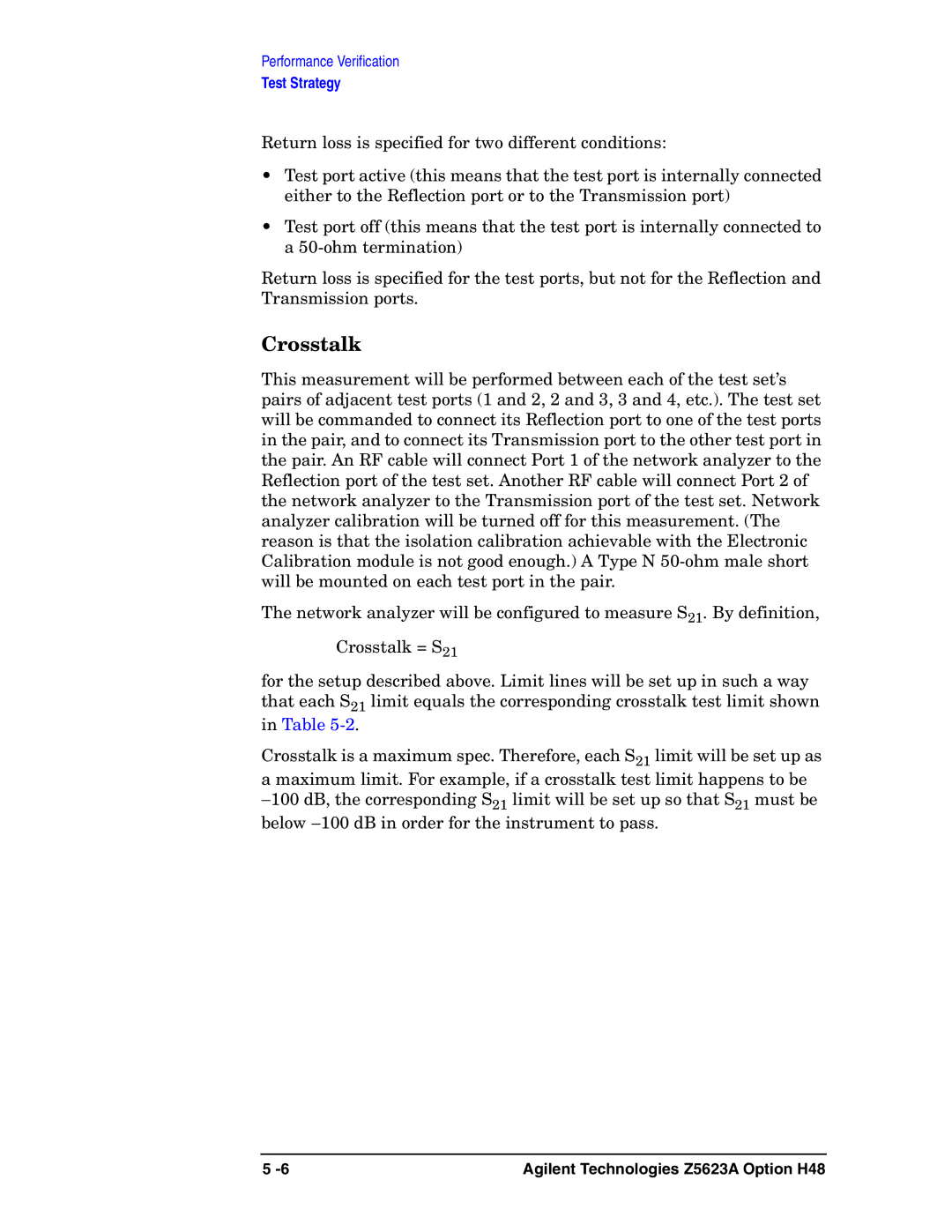Performance Verification
Test Strategy
Return loss is specified for two different conditions:
•Test port active (this means that the test port is internally connected either to the Reflection port or to the Transmission port)
•Test port off (this means that the test port is internally connected to a
Return loss is specified for the test ports, but not for the Reflection and Transmission ports.
Crosstalk
This measurement will be performed between each of the test set’s pairs of adjacent test ports (1 and 2, 2 and 3, 3 and 4, etc.). The test set will be commanded to connect its Reflection port to one of the test ports in the pair, and to connect its Transmission port to the other test port in the pair. An RF cable will connect Port 1 of the network analyzer to the Reflection port of the test set. Another RF cable will connect Port 2 of the network analyzer to the Transmission port of the test set. Network analyzer calibration will be turned off for this measurement. (The reason is that the isolation calibration achievable with the Electronic Calibration module is not good enough.) A Type N
The network analyzer will be configured to measure S21. By definition,
Crosstalk = S21
for the setup described above. Limit lines will be set up in such a way that each S21 limit equals the corresponding crosstalk test limit shown in Table
Crosstalk is a maximum spec. Therefore, each S21 limit will be set up as a maximum limit. For example, if a crosstalk test limit happens to be −100 dB, the corresponding S21 limit will be set up so that S21 must be below −100 dB in order for the instrument to pass.
5 | Agilent Technologies Z5623A Option H48 |
